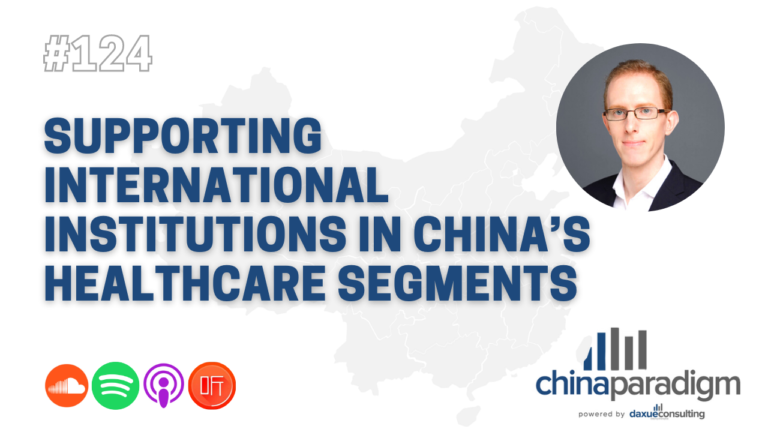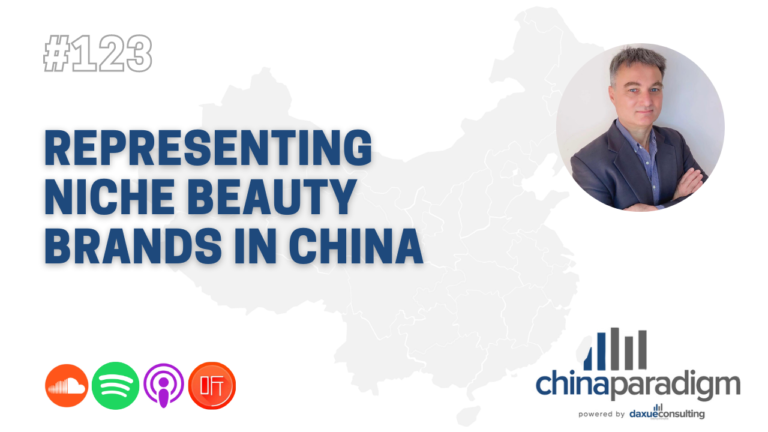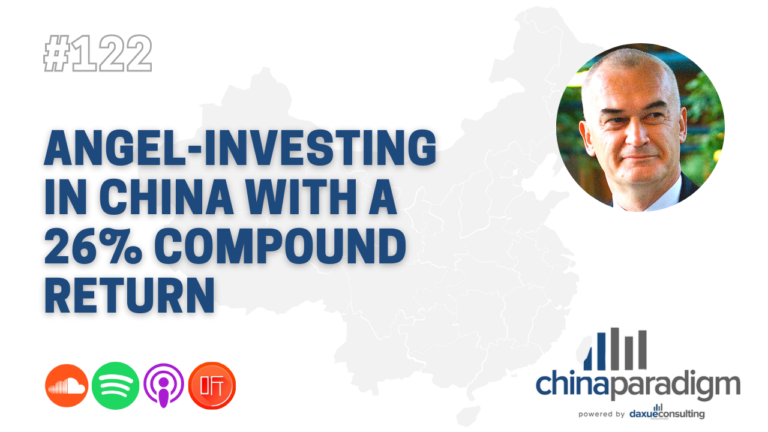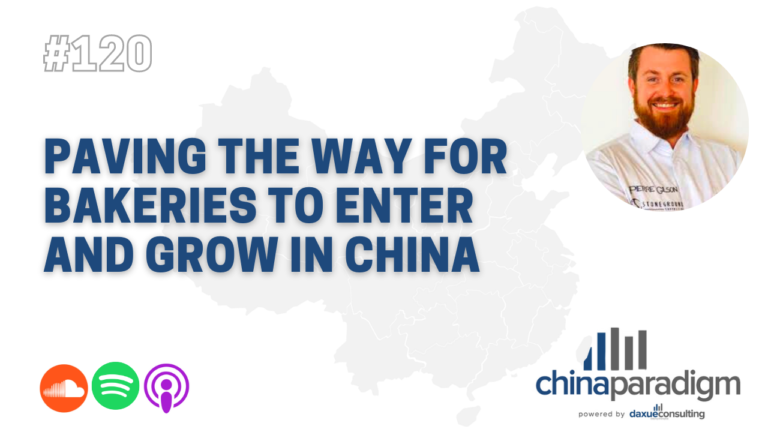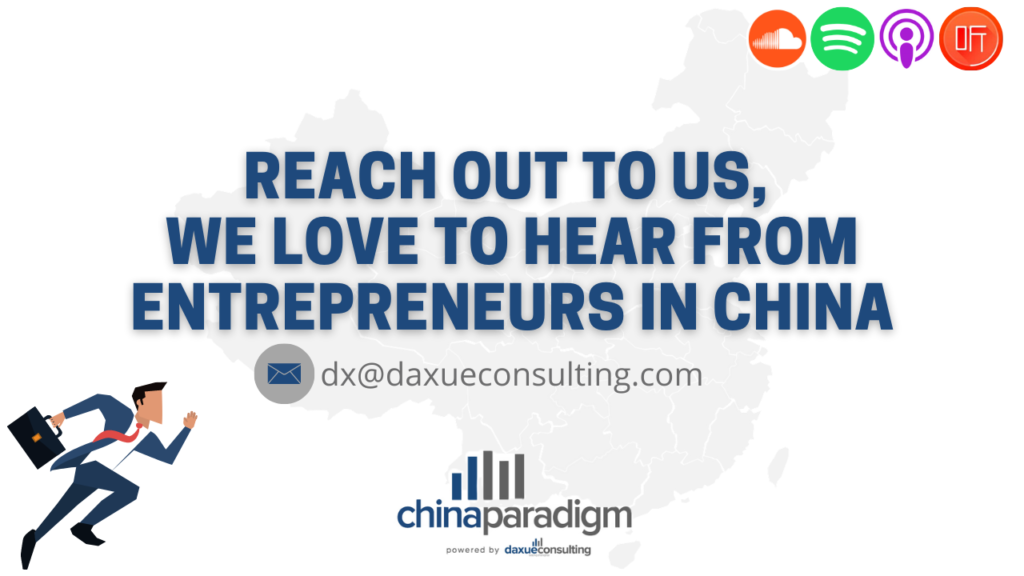China Paradigms interviewed Olivier Tollet, the Enterprise Director of Greater China at Cushman & Wakefield, a global leading real estate business in China, to learn how technology is reshaping China’s retail industry and how to be prepared for China’s new retail revolution.
Olivier Tollet, an expert in both China’s retail industry and real estate
In 1988, Olivier Tollet received his Bachelor’s degree in Economics from Paris Nanterre University. He chose to further his education after graduation and completed his Master’s degree in Marketing at Paris Dauphine University.
After finishing studies, Olivier worked in data analysis for four years and then spent more than three years in the marketing and sales field. In July 1998, he started his career as the Global Marketing Deputy Director at Carrefour, where he has devoted more than two decades in helping the company expand the market in China’s retail industry.
In 2005, he relocated to Shanghai as the Director at Carrefour China and worked on its marketing strategies, data analysis, and national expanding. During his occupancy over 10 years, Olivier successfully spread “Carrefour Preference” in more than 250 cities all over China. In 2014, facing China’s new retail revolution, Olivier created the brand “Easy Carrefour” and opened 40 stores in downtown Shanghai.
In 2018, Olivier embarked his entrepreneurship in China and co-founded TopLoc to help brands determine the best location offline and prepare for the future of the retail industry in China. At the same year, with his sufficient knowledge of China’s retail industry, he decided to switch to the real estate business in China and joined Cushman & Wakefield as the Enterprise Director of Greater China.

Cushman & Wakefield: Rewrites the real estate business in China
Located in Chicago and with regional headquarters in New York City, London, Sydney, and Bengaluru, Cushman & Wakefield is among the largest firm providing real estate services in the Chinese market and the world. Founded in 1917, Cushman & Wakefield now operates in approximately 400 offices and 70 countries and has more than 51,000 employees.

As the Enterprise Director of Greater China at Cushman & Wakefield, Olivier is providing the Global Occupier Services for big corporates. According to Olivier, one of the most significant Cushman & Wakefield’s advantages is its largest platform in the real estate business in China of almost 300 brokers spreading all over the country, which makes it have a presence in more than 20 cities and develop more than 20 service lines.
Other than standard real estate services in the Chinese market, Cushman & Wakefield also has a department specialized in China’s retail industry that provides evaluation services for companies considering acquisition before actual transactions. According to him, more and more foreign companies are active in purchasing properties in the real estate business in China.
Real estate is the biggest challenge China’s retail industry faces
With his expertise in both China’s retail industry and real estate business in China, Olivier believes that for retailers, real estate is their biggest challenge in China’s new retail revolution. When more customers flood into the online landscape because of the attractive promotions there, the price of the real estate services in the Chinese market, especially the rents in big cities like Shanghai, becomes a massive burden for retailers.
“Everybody in China’s retail industry is looking for gaining more market shares and acquiring new customers as fast as possible,” Olivier further explained, “That’s why today, the E-commerce in China has such a big market share versus the rest of China’s retail industry.”
In China’s new retail revolution, traditional players like Carrefour start to adapt their business models to prepare for the future of the retail industry in China. In 2014, Olivier helped Carrefour China create the brand “Easy Carrefour” with a concept of letting customers choose how to use a store.
According to Olivier, traditional hypermarkets and supermarkets in China’s retail industry are around 6,000 to 10,000 square meters and occupy two floors typically, while Easy Carrefour is only about 200 square meters. With this unique format between convenience stores and small supermarkets, Easy Carrefour can provide customers more options, covering their breakfast, lunchtime, and grocery shopping as well.
“In the future of the retail industry in China, all players need to let the customers choose. Because they used to know your brands through a lot of touchpoints, now they want to decide by themselves.”
Technology is reshaping retail in China
As an expert in China’s retail industry for almost 15 years, Olivier has witnessed earthshaking changes happening in the industry, particularly resulted from the rapid development of technology in China.
With the big data, players in China’s retail industry are able to evaluate the location of their sites more easily and intuitively through tracking the mobile data passing by or setting up cameras in front of the stores. The information gathered from these big data allows brands to have a comprehensive analysis of their customers about their shopping habits and interests. Moreover, this technology reshaping retail in China and disrupts the landscape of the industry by providing more innovative approaches for traditional retailers to engage with customers, such as unmanned shops and pop-up stores.
“In general, there is a huge appetite for technology in China,” said Olivier, “People are willing to try any tech gear. The environment is very positive for technology.”
Listen to China Paradigm in iTunes






